Dietary fibre, or simply fibre, is a part of food, commonly found in plants, that do not get digested or broken down by enzymes in the stomach.
It is usually common in foods such as fruits, vegetables, and grain, and it is classified as a carbohydrate.
Fibre is usually grouped into two types, and knowing them would allow you to understand the benefit of fibre to the body:
- Soluble fibre: this type of fibre easily dissolves in water which then goes on to form a gel-like material. This helps to reduce both blood sugar and cholesterol. This type of fibre is more present in oats, barley, and psyllium.
- Insoluble fibre: this type of fibre does not dissolve but rather helps to aid bowel movement, right from the digestive system, making it easier to pass stool. This makes it good for those having constipation issues. This type of fibre can be found in wheat and cellulose. [1]
Now, we have seen that fibre is very good for the stomach. The fact that it is not digested does not make it bad in any way as it actually helps to aid digestion and even lower blood sugar, reducing the risks of diabetes. This articles discusses some Nigerian foods that are rich in fibre. [2]
In Nigeria, where carbohydrate forms the bulk of what we consume, we come in contact with fibre-rich foods every day, even when we do not realise it.
So today, we would be looking at some Nigerian foods that are rich in fibre.
1. Corn
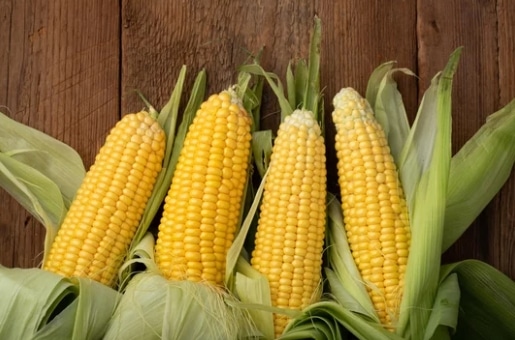
Corn, or maize, is a popular meal for most Nigerians. Whether you enjoy it alone or with pear, you can never go wrong with corn.
One thing that has made the food so popular is its availability, as you can find corn in any region in the country. It is also quite easy to plant and has a very short cycle.
Corn, which is the chief ingredient of most cereals, is very rich in fibre, as well as having low calories. If you have not been eating enough corn, you should start today to reap the benefits.
Other Nigerian foods rich in fibre, that are made with corn include pap (akamu or ogi), agidi and corn flour.
2. Rice
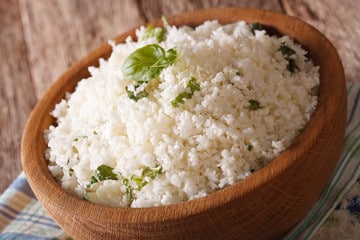
Another food Nigerians love eating is rice. In fact, it is the main food on most occasions.
Rice is a very good source of carbohydrate, needed for energy to carry out daily tasks, as well as soluble fibre, which can help decrease your chances of having diabetes.
The fibre content in rice can be as high as 3.5 grams per cup. But it should be noted that high fibre can be found in unprocessed rice as those processes would have had most of their fibre washed away during the preparation.
So do well to source for the rice commonly referred to as “local rice” as not only is it tastier but also more nutritious.
One the common rice variety grown in Nigeria known as Ofada rice, is also rich in fibre.
3. Beans
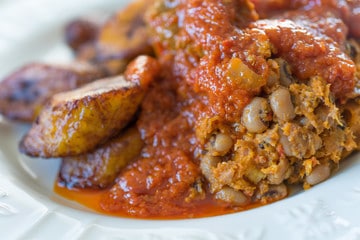
Nigerians main source of protein is beans, but you may also have to start looking at the food as your source of fibre too. Whatever reason you had not to enjoy beans before, you can shelf it and now start increasing your fibre intake with beans.
Different types of beans have fibre in various amounts, but you are sure to enjoy the same benefits, no matter the type you consume. Beans is also one of the Nigerian foods that helps you lose weight.
4. Poundo Potato
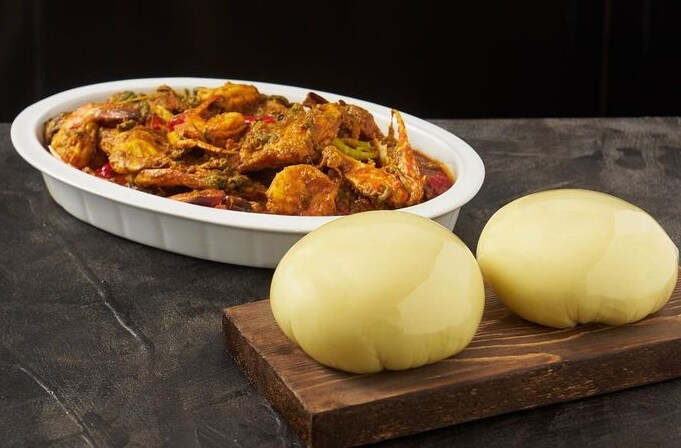
Poundo potato is a Nigerian staple dish made from boiled potatoes, pounded into a smooth, dough-like consistency. Potatoes are high in carbohydrates and rich in nutrients like vitamin C, B6, phosphorus, niacin, and manganese.
As a Nigerian “swallow,” poundo potato is typically eaten with various Nigerian soups. It offers significant health benefits, including being rich in fiber, which aids digestion and promotes bowel regularity, helping to prevent constipation.
A 180g portion of boiled potatoes contains 3 grams of fiber, providing over 10% of the recommended daily intake.
5. Acha (Fonio)
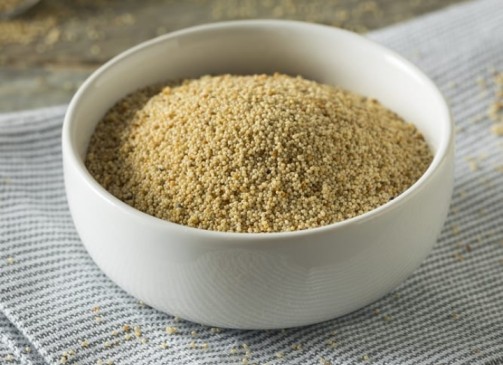
In Nigeria, the grain known as Acha or Fonio is widely consumed, while in The Gambia, it is called “findi” or “fundi.” Commonly referred to as white fonio, fonio millet, or hungry rice. It’s scientific name is Digitaria exilis, a small millet variety grown across Africa.
Acha is a staple cereal in Nigeria, especially during the dry season. It can be ground into flour for beverages or cooked in various dishes.
Rich in fiber, it helps burn fat and promotes a feeling of fullness. A 100-gram serving contains 3 grams of fiber and a moderate amount of calories.
6. Guinea corn
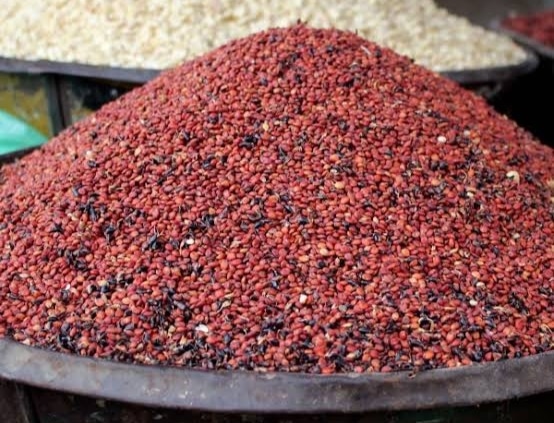
Guinea corn, also known as sorghum, is a popular cereal in Africa and has been cultivated in Nigeria for centuries. It belongs to the same family as corn, rice, and wheat and is one of the most produced cereal crops globally. Guinea corn is often ground into flour to make bread, porridge, and pancakes.
One key benefit of guinea corn is its high fiber content, which aids digestion and prevents constipation and irregular bowel syndrome.
A cup serving contains 144 grams of carbohydrates and 16 grams of fiber, making it an excellent choice for digestive health.
7. Plantains
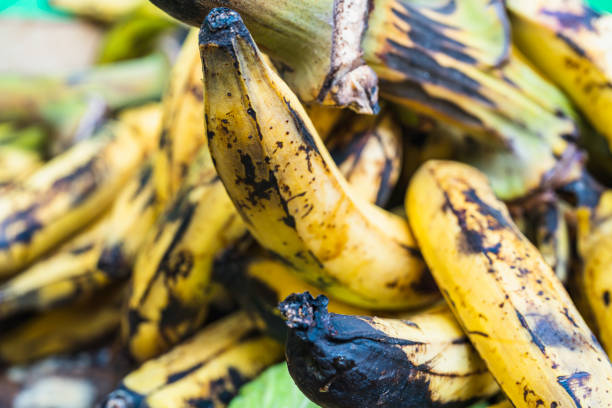
Plantains are a starchy, banana-like fruit that is a staple in many Nigerian diets.
Unlike bananas, plantains are typically cooked before eating and can be used in a variety of dishes such as fried plantains, boiled plantains, and plantain porridge. They are versatile and can be prepared in both savory and sweet recipes.
In Nigeria, plantains are commonly enjoyed as a side dish or main course, often paired with stews, soups, or sauces. They are particularly valued for their nutritional content, especially their high fiber levels.
A 100-gram serving of plantains contains about 2.3 grams of fiber, which helps promote healthy digestion and maintain bowel regularity.
8. Cashew nuts
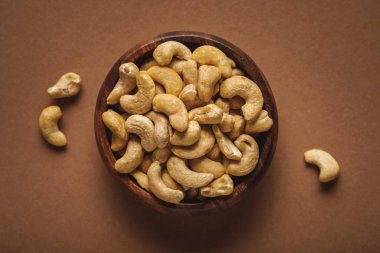
Cashew nuts are a popular snack in Nigeria, known for their rich nutrients and creamy texture. They are often eaten raw, roasted, or used in various dishes.
These nuts are high in fiber, with a 100-gram serving containing about 3.3 grams. This fiber content helps improve digestion and supports bowel regularity.
9. Avocado
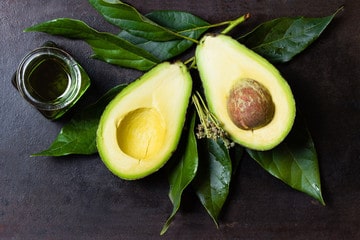
Avocado is a fruit with immense benefits. It is rich in mono and polyunsaturated fats, which only help you reduce your cholesterol levels.
Besides that, avocados have high amounts of fibre, with one avocado having as much as 10 grams of fibre, which is relatively high, for a fruit.
Moreover, the fibre in avocado comes in the soluble and insoluble kind. So that is another reason for you to start eating avocados if you do not already.
10. Wheat bread
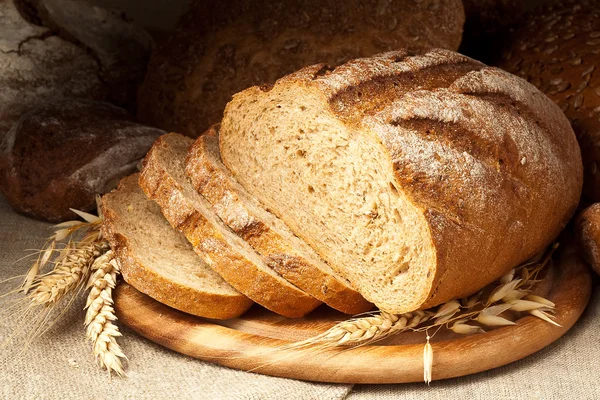
Many Nigerians do not like wheat bread because of the taste. While it may not be as sweet as white bread, most people would rather enjoy, wheat bread contains more nutrients because the grains have not been processed as in the case of white bread, meaning it contains high fibre.
11. Pasta
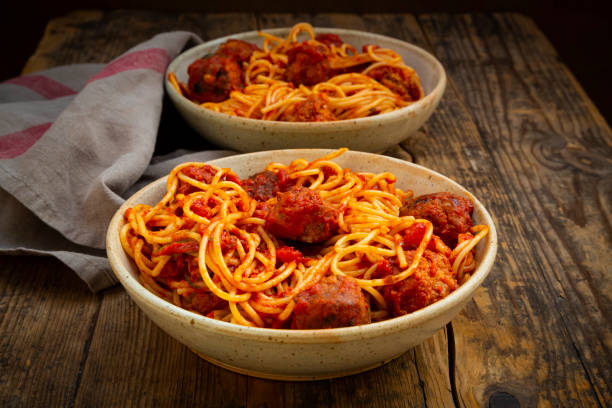
Pasta, especially whole-grain pasta, is a rich source of fibre, added to the many other nutrients you can find in it.
The key is to look out specifically for whole-grain pasta or spaghetti as the refined or processed on would contain less or no fibre at all with more calories.
12. Cassava
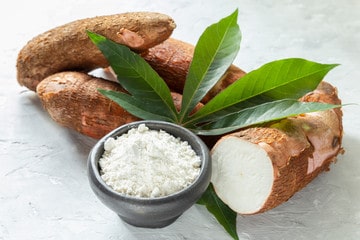
Cassava is one root crop that can be enjoyed in many ways in Nigeria. Either processing it straight to garri, or leaving it to ferment and turn to fufu, or drying it and having it turned to abacha, you cannot go wrong whichever way you choose.
The good thing is you will still always enjoy the insoluble high fibre content present in the crop.
13. Oats
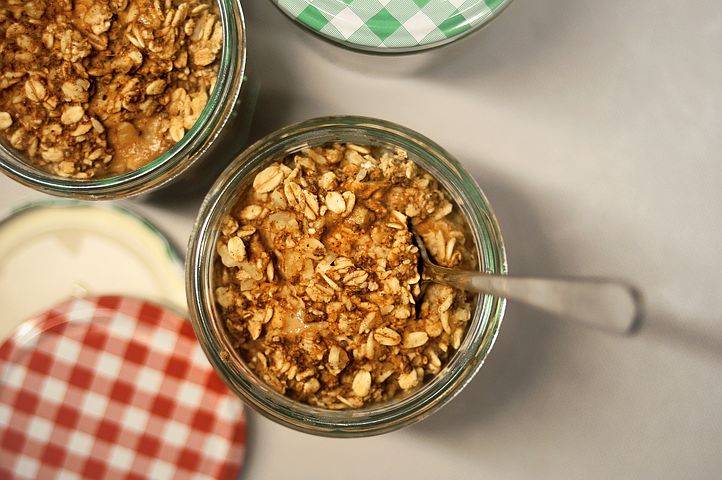
Taking Oats is a good way to start the day. Apart from making a good cereal with very low calories, oats also contain a kind of fibre known as beta-glucan, which seriously helps reduce cholesterol in the body. It is also a good source of soluble and insoluble fibre. [3]
Oats are one of the healthy Nigerian cereals, that is usually eaten for breakfast.
14. Breadfruit (Ukwa)
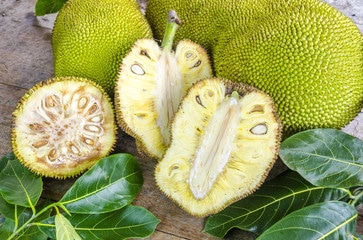
Breadfruit is a tropical fruit that is common in Nigeria. It is one of the Nigerian foods that are rich in fibre because it has an extremely high fibre content. It is great for the digestive system, and is equally delicious.
15. Garden Eggs
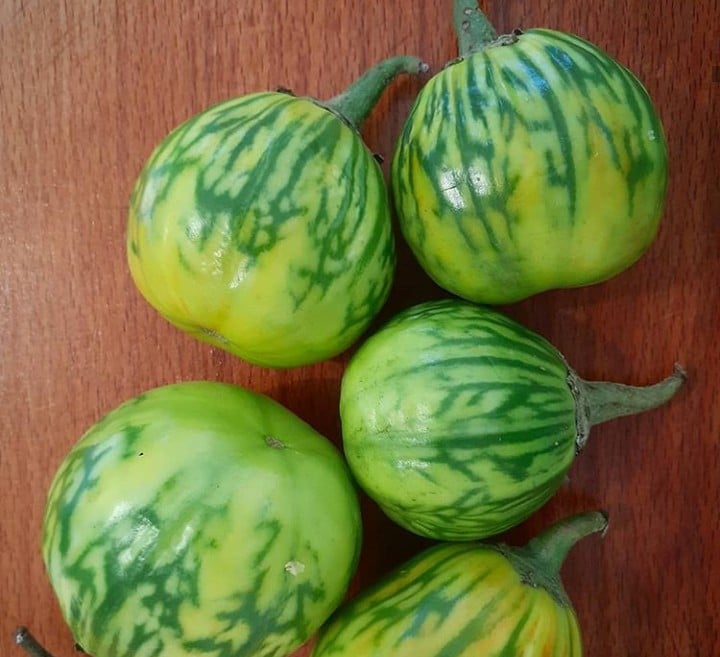
Garden eggs are another fibre-rich Nigerian food. It is readily available, affordable and super tasty. In Nigeria, garden eggs are popular and can be eaten raw or added to a meal as a side dish.
It is called Igba in Yorubas, Ańara in the Igbo Language, and Gauta in Hausa.
Other Nigerian foods that are rich in fibre:
- Tiger nuts
- Dates (Dabino)
- Nigerian pear (ube)
- Banana
- Carrots
- Vegetable soup
- Spinach
- Apples.
ALSO READ:
- 10 Nigerian Foods That Are Easy To Digest
- 10 Nigerian Foods to Avoid When Trying to Lose Weight
- 12 Nigerian Foods That Boost Breast milk Production
- 7 Nigerian Foods That Boosts Ovulation
- 5 Nigerian Foods That Are Good For The Eyes
- 8 Nigerian Foods That Are Rich In Folic Acid
- 7 Nigerian Foods That Are Rich in Soluble Fibre
- 10 Nigerian Foods That Lower Blood Sugar
- Healthy Nigerian Foods for Ulcer Patients
- Common Nigerian Foods That Balance Hormones
- 7 Healthy Nigerian Foods for Hypertensive Patients
- 13 Healthy Nigerian Foods Rich In Magnesium
Collins Nwokolo is a human physiologist, writer and health enthusiast. He loves writing helpful articles on health and fitness, which he enjoys sharing with everyone.





